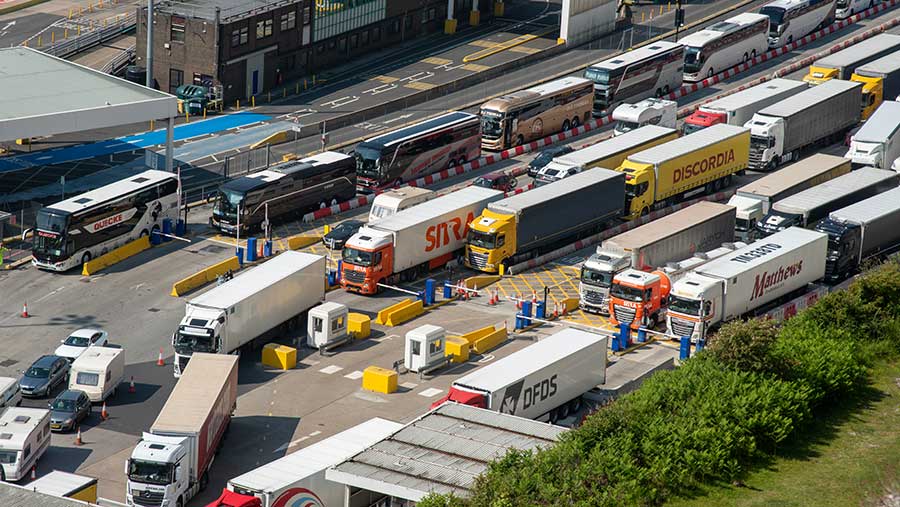Defra confirms funding withdrawal for Dover illegal meat checks
 © Michalis Palis/Adobe Stock
© Michalis Palis/Adobe Stock Defra has confirmed that grant funding for checks for illegal meat imports at Dover will be withdrawn at the end of April, after which it will be up to the Port Health Authority (PHA) to start charging offenders to recover costs.
The information is set out in a letter from biosecurity minister Lord Douglas-Miller to Sir Robert Goodwill, the Environment, Food and Rural Affairs (Efra) committee chairman, responding to a number of questions raised by the committee last month.
See also: UK must not become ‘dumping ground’ for cheap food imports
In particular, Sir Robert wanted to know if media reports of a planned 70% cut in the funding were true, how many checks were currently being made, and what would be the implications for UK biosecurity from reducing such checks.
In his reply, Lord Douglas-Miller explains that the budget for such spot checks – designed to look out for meat contaminated with African swine fever – was only ever intended as a temporary measure, until such time as the new Border Target Operating Model (BTOM) came into force.
“Once phase two of the BTOM is introduced in April, this transitional grant funding scheme will end as intended,” he said.
The letter goes on to say that Defra is still “open to discussion” about a future, lower level of core funding.
“We have also advised all PHAs that we expect them to introduce charging to recover costs incurred when dealing with illegal imports.”
Commercial imports
With regard to commercial food imports, Defra has also confirmed that anything earmarked for a physical inspection from 30 April will be directed to the new Border Control Post (which has still to be officially designated as such) at Sevington, some 22 miles inland.
“Goods selected for inspection will not be legally cleared for sale or use within the UK until they have attended and been cleared at the BCP,” says the letter.
“Where the BCP has concerns, for example due to non-attendance, there are existing provisions for the goods to be referred for inland controls by the local authority.”
It does not state what percentage of imports will be subject to checks – only that it will be “risk based” and will involve a “trusted trader” scheme.
Disappointed
Sir Robert told Farmers Weekly the whole Efra committee was disappointed with the response.
“We have deep concerns about biosecurity,” he said. “Sevington is 22 miles away from Dover, and we’ve not had any indication if there will be any procedure or resource for following a vehicle to make sure it arrives at Sevington.
“If they are not tracking the vehicles, what is to stop any contraband being dumped in a lay-by, or transferred to another vehicle?”
The cuts in funding for spot checks on vans and cars at Dover port also left the door wide open to illegal imports of meat contaminated with African swine fever or, worse still, foot and mouth disease, he said.
